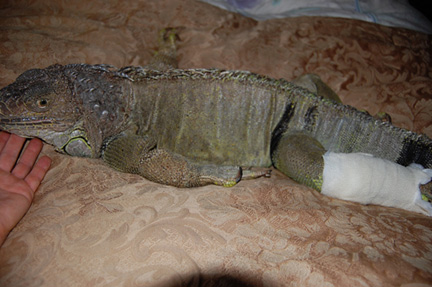First of all, don’t go to a phone book or the web and choose a vet. Don’t choose a vet because he is the closest and most convenient, or the least expensive.
The best thing to do is research first:
- Call your local Herpetological Society – Herp Societies are here to help you and inform you about many issues. It is also a good group to join and meet others that share your passion. Being part of this club is a lot of fun and helps support their cause
- Call the zoo – If you are lucky enough to have a zoo in your city simply call the reptile curator’s office and talk to their assistant. They are happy to give you information on the vets they use and they are the absolute best.
- Call your locally owned reptile store – A reptile store is a hub for information as well. Staff is always there to help. In San Diego, Lllrepitle stores are extremely helpful answering any questions you may have.
Once you have a name you can research them online, but remember office reviews can be biased and untrue. It is better to research their name and qualifications to see their accomplishments and news stories about them.
Expert Vets
An expert reptile vet will touch and feel every inch of your iguana, from the eyes, nose, mouth, legs to the tip of the tail. He will take time observe him and will spend a lot of time on your first comprehensive visit.
He will ask questions about what you feed him and where he spends his days and nights and take extensive notes. He will take photographs for his records so he can refer to them in the future.
An Expert vet takes your pet’s care seriously and is excited to have new member in his “family”.
Make a list
Sometimes we expect our vet to be a mind reader, but he can only give you the best diagnoses if he has all the facts. Come prepared with a page or two of history, this will insure you get the best diagnosis.
Make a list his symptoms, the foods you are feeding him, and all other questions you are seeking answers to. A good doctor is proud of their knowledge and is excited to share it with you.
Cost of Care
Be prepared to spend some money. If your iguana is acting oddly, not eating, not pooing, or you are concerned about something, don’t let the cost keep you from seeking advice and treatment. Care can be expensive, so budget out the cost through the year and have a slush fund especially for your little friend.
Exotic vets are pricey but the extra cost is worth it. A young, well cared for pet will probably only require a yearly checkup, but as an iguana reaches 15 years, the visits will become very important and be prepared to spend more money. If money is an issue, consider doing some more research and use one vet for the basics, bloodwork and x-rays. If there is a problem that requires specialized treatment, they will send you to a specialist.
The herp society helped me get free care when my funds were limited. So make the call and inquire because sometimes grants are available to those in need. Don’t be afraid to ask.Remember you can’t put a price on the love they give you!
Choose a private practice.
This means one that is owned by the vet himself. Many are owned by a business and these have rules that the staff must adhere to. Rules like you aren’t allowed to go to the back room and see them or visit them. This is a red flag to me. I want to know where he is and what his conditions are. Your pet needs you and it is vital for them to know haven’t forgotton them.
Private practices cater to your needs as an individual and can allow more freedom. If they know you are knowledgeable, sometimes you can bring them home after surgery and give them one on one care thru the night. Little things like this make a big difference for people like me.
Learn From My Experience
When babe was young, I picked his veterinarian from a phone book. I put his life in their hands, assuming their diagnoses and antibiotic dosage was correct and injections were made correctly. One vet even sent me home with needles and instructions to inject him every 72 hours. How could I do that? What if I punctured his lung or did it wrong? I did try. I bent the needle and just couldn’t do it.
I had the option to bring him in and they charged me $8 to inject him, it was worth it but later realized a vet shouldn’t charge you for helping with an injection. If they do, think twice about ever using them again.



